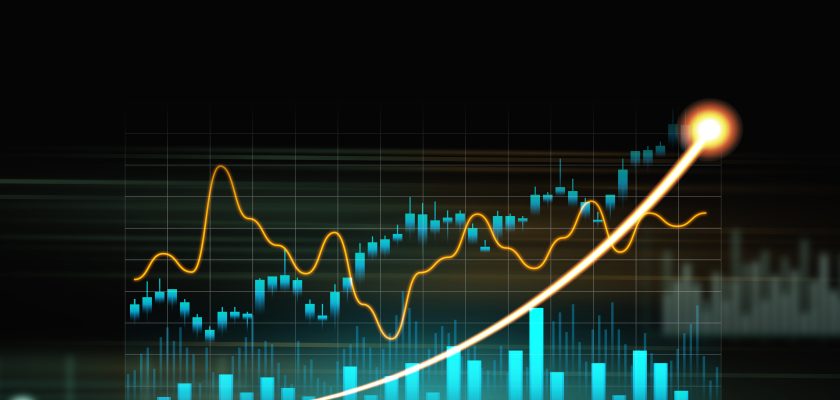Introduction
The landscape of investment has undergone a profound transformation with the advent of digital technologies. Traditional notions of stock trading floors and brokerages have given way to sleek online platforms, blockchain technologies, and automated systems. In this exploration, we unravel the layers of the digital realm of investment, examining its evolution, key components, and the dynamic forces shaping contemporary investment strategies.
The Evolution of Digital Investment
From Trading Floors to Online Platforms
The shift from physical trading floors to online platforms marked a pivotal moment in the evolution of investment. Investors no longer needed to be physically present at stock exchanges; instead, they could execute trades with a few clicks from the comfort of their homes. This transition democratized access to financial markets, opening up opportunities for a broader spectrum of investors.
Rise of Cryptocurrencies and Blockchain
The emergence of cryptocurrencies, led by Bitcoin in 2009, introduced a decentralized dimension to digital investment. Blockchain technology, the backbone of cryptocurrencies, revolutionized the way transactions are recorded and verified, fostering transparency and security. Investors flocked to this new asset class, drawn by the promise of decentralization and the potential for substantial returns.
Key Components of the Digital Investment Landscape
Online Trading Platforms
Central to the digital investment landscape are online trading platforms. These user-friendly interfaces provide investors with real-time market data, research tools, and the ability to execute trades swiftly. Whether it’s stocks, bonds, or commodities, these platforms serve as the gateway to financial markets for millions of investors worldwide.
Cryptocurrencies and Decentralized Finance (DeFi)
Cryptocurrencies like Bitcoin, Ethereum, and others have become a prominent feature of digital investment portfolios. Additionally, the rise of decentralized finance (DeFi) has introduced a suite of financial services, including lending, borrowing, and trading, operating without traditional intermediaries. DeFi projects leverage smart contracts to automate processes, offering users increased control over their assets.
Robo-Advisors and Algorithmic Trading
Robo-advisors have brought automation to investment management. These digital platforms use algorithms to create and manage portfolios based on investors’ risk tolerance and financial goals. On the other hand, algorithmic trading systems execute trades automatically based on predefined criteria, enabling high-frequency trading and rapid response to market changes.
Crowdfunding and Peer-to-Peer Lending
The digital era has given rise to crowdfunding platforms that enable individuals to invest in a diverse range of opportunities, from real estate projects to startup ventures. Peer-to-peer lending platforms connect borrowers directly with lenders, bypassing traditional financial institutions and offering a new avenue for both investors and borrowers.
Mobile Apps and Accessibility
Mobile apps have become integral to the digital investment experience. Investors can monitor their portfolios, receive real-time market updates, and execute trades on-the-go. This increased accessibility has empowered a new generation of investors, reducing barriers to entry and fostering a more dynamic investment ecosystem.
Dynamics Shaping Modern Investment Strategies
Data-driven Decision Making
In the digital realm, data is king. Investors harness vast amounts of data for market analysis, trend identification, and risk assessment. Machine learning algorithms process this data, providing insights that inform investment decisions. The ability to make data-driven decisions has become a cornerstone of successful modern investment strategies.
Embracing Cryptocurrencies and Blockchain
The acceptance of cryptocurrencies as a legitimate asset class has led to a diversification of investment portfolios. Institutional investors, once hesitant, are now exploring ways to incorporate cryptocurrencies into their strategies. Blockchain technology’s potential to enhance security, reduce fraud, and streamline processes has also garnered attention across various industries.
Automation and Algorithmic Precision
Robo-advisors and algorithmic trading systems bring a level of precision and efficiency to investment management. The automation of routine tasks allows investors to focus on strategic decision-making, while algorithms react swiftly to market changes. However, the increasing reliance on automation raises questions about the role of human intuition in the investment process.
Regulatory Challenges and Security Concerns
As the digital investment landscape expands, regulators grapple with the need to establish frameworks that protect investors without stifling innovation. Security concerns, particularly in the realm of cryptocurrencies and DeFi, remain a focal point. Striking a balance between fostering innovation and safeguarding investors against potential risks poses a continual challenge for regulatory bodies.
Financial Inclusion and Democratization
Digital investment has played a pivotal role in expanding financial inclusion. The accessibility of online platforms, coupled with the fractional ownership opportunities offered by crowdfunding and peer-to-peer lending, has empowered individuals who were previously excluded from traditional financial systems. This democratization of finance is reshaping the demographics of investors worldwide.
Conclusion
In conclusion, diving into the digital realm of investment unveils a landscape defined by innovation, accessibility, and dynamic shifts. From the evolution of online platforms to the embrace of cryptocurrencies and the automation of investment processes, the digital era has reshaped how we approach financial markets. As we navigate this ever-evolving terrain, it’s crucial to embrace both the opportunities and challenges that come with the unfolding dynamics of modern investment.


